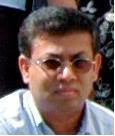Death is an enlightening start (of course, don't try to pinpoint start with a time point) instead of a frightening end.
Here is the proof.
Death, in medical terms, is brain dead. When your brain dies, your consciousness and the "self" vanish. Self creates the illusion of "I" in your identity, making you think you are not part of the universe. Everything is built upon electrons, up and down quarks (matter = energy) at the sub-atomic level. So, when the mind shuts down, and the self is gone. You are back to your roots, i.e., part of the universe - back home... Getting back home is always exciting, isn't it? So, how can it be frightening?
Read more: Self, The Origin - Identity.
Read more: Self, The Origin - Identity.



